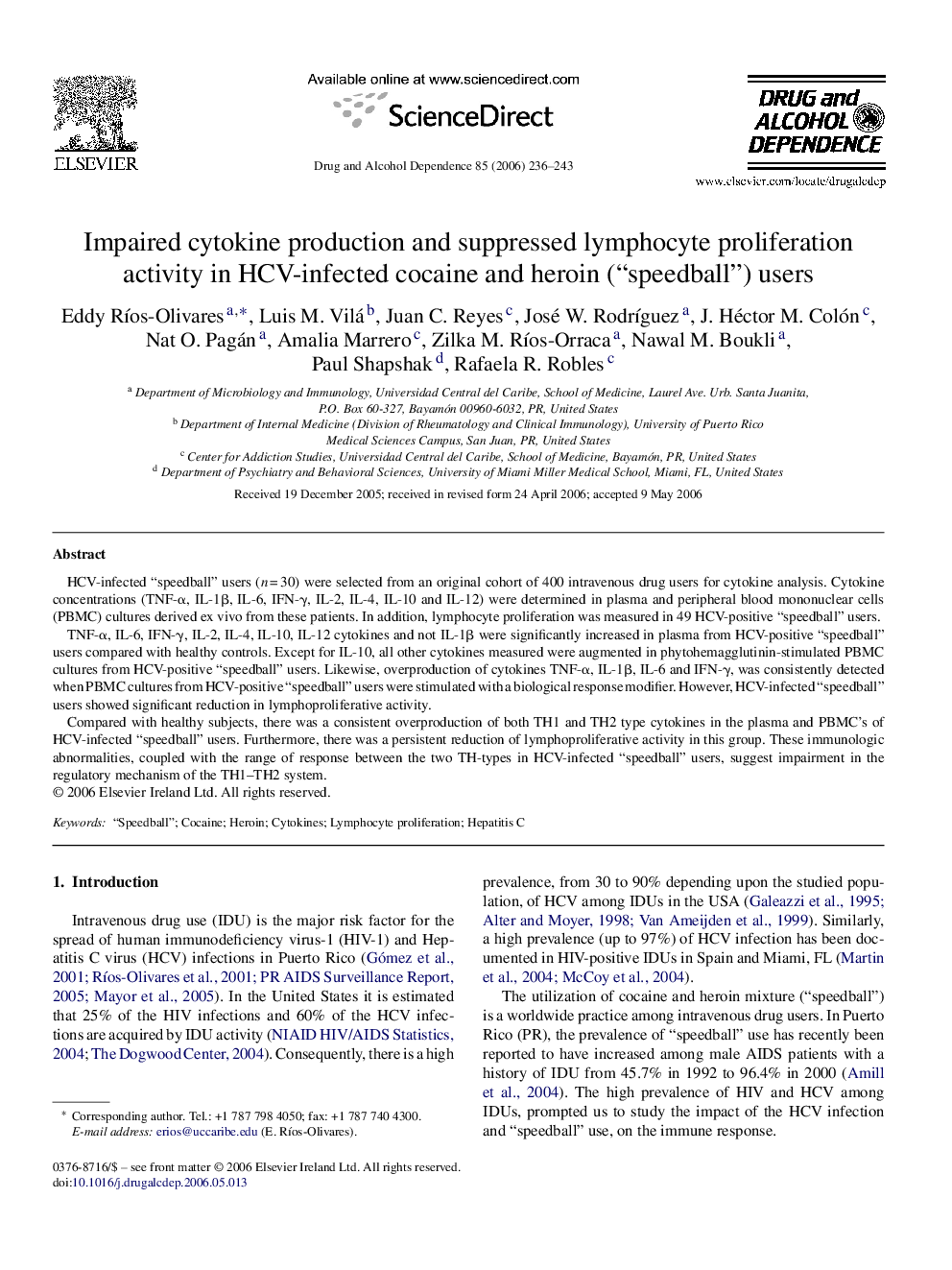| Article ID | Journal | Published Year | Pages | File Type |
|---|---|---|---|---|
| 1071807 | Drug and Alcohol Dependence | 2006 | 8 Pages |
HCV-infected “speedball” users (n = 30) were selected from an original cohort of 400 intravenous drug users for cytokine analysis. Cytokine concentrations (TNF-α, IL-1β, IL-6, IFN-γ, IL-2, IL-4, IL-10 and IL-12) were determined in plasma and peripheral blood mononuclear cells (PBMC) cultures derived ex vivo from these patients. In addition, lymphocyte proliferation was measured in 49 HCV-positive “speedball” users.TNF-α, IL-6, IFN-γ, IL-2, IL-4, IL-10, IL-12 cytokines and not IL-1β were significantly increased in plasma from HCV-positive “speedball” users compared with healthy controls. Except for IL-10, all other cytokines measured were augmented in phytohemagglutinin-stimulated PBMC cultures from HCV-positive “speedball” users. Likewise, overproduction of cytokines TNF-α, IL-1β, IL-6 and IFN-γ, was consistently detected when PBMC cultures from HCV-positive “speedball” users were stimulated with a biological response modifier. However, HCV-infected “speedball” users showed significant reduction in lymphoproliferative activity.Compared with healthy subjects, there was a consistent overproduction of both TH1 and TH2 type cytokines in the plasma and PBMC's of HCV-infected “speedball” users. Furthermore, there was a persistent reduction of lymphoproliferative activity in this group. These immunologic abnormalities, coupled with the range of response between the two TH-types in HCV-infected “speedball” users, suggest impairment in the regulatory mechanism of the TH1–TH2 system.
